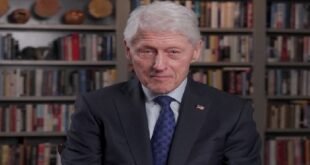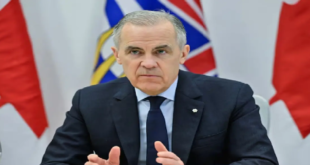28-04-2024
Bureau Report + Agencies
NEW DELHI/ BENGALURU/ MATHURA: India held the second phase of the world’s biggest election on Friday, with Prime Minister Narendra Modi and his rivals hurling accusations of religious discrimination and threats to democracy amid flagging voter turnout.
Almost one billion people are eligible to vote in the seven-phase general election that began on April 19 and concludes on June 1, with votes set to be counted on June 4.
 Modi is seeking a record-equaling third straight term on the back of his economic record, welfare measures, national pride, Hindu nationalism and personal popularity. Surveys suggest he will easily win a comfortable majority.
Modi is seeking a record-equaling third straight term on the back of his economic record, welfare measures, national pride, Hindu nationalism and personal popularity. Surveys suggest he will easily win a comfortable majority.
His challengers have formed an alliance of more than two dozen parties and are promising greater affirmative action, more handouts and an end to what they call Modi’s autocratic rule.
A total of 88 seats out of the 543 in the lower house of parliament went to the polls on Friday, with 160 million people eligible to vote across 13 states and federal territories.
Approximate voter turnout data at the end of polling put Friday’s turnout at 61%, lower than the 65% in the first phase last week, and 68% in the second phase five years back.
The Election Commission and political parties are concerned that unseasonably hot weather, and weddings in some parts of the country, would affect turnout.
Analysts say that there is no single issue strong enough to pull voters out this time and the committed Hindu nationalist base of Modi’s Bharatiya Janata Party (BJP) may not be stepping out due to complacency or overconfidence, resulting in lower turnouts.
More than half the seats in Friday’s contests were in the southern states of Kerala and Karnataka and the northwestern state of Rajasthan.
 The campaign has become more heated since the first phase of voting on April 19 as Modi and the main opposition Congress party have faced off on communal issues with Modi accusing Congress of favoring minority Muslims, aiming to dilute affirmative action and planning to impose an inheritance tax.
The campaign has become more heated since the first phase of voting on April 19 as Modi and the main opposition Congress party have faced off on communal issues with Modi accusing Congress of favoring minority Muslims, aiming to dilute affirmative action and planning to impose an inheritance tax.
Congress has denied the charges and said Modi fears losing and was using divisive language to distract voters from real issues such as unemployment, rising prices and rural distress but some voters were responding to the BJP.
“I will vote for BJP. Muslims will get a lot of benefits if Congress comes to power and I don’t want taxpayers’ money to go for the benefit of any one community,” said Shree Hari S.S., 23, who voted in the tech hub of Bengaluru.
Others were not happy with what they said was a sectarian shift in politics.
“BJP is using temples and mosques to create a divide between Hindus and Muslims, to move away from real issues such as unemployment and rising prices,” said Sokin Qureshi, 29, an unemployed Muslim voter in the northern city of Mathura.
Rahul Gandhi, former Congress president and the face of the party, was among the 1,200 candidates hoping to be elected on Friday.
“This election is not a regular election … because for the first time in the history of India, one party and one person is trying to finish the constitution and democracy of India,” Gandhi said at an election rally in a region of Karnataka, which votes next week.
Gandhi is seeking re-election from Wayanad in Kerala and faces Annie Raja of the Communist Party of India (CPI) and BJP’s K. Surendran, among others, in the Left Front-ruled state.
 Pressmediaofindia
Pressmediaofindia




